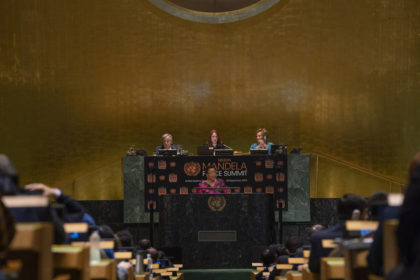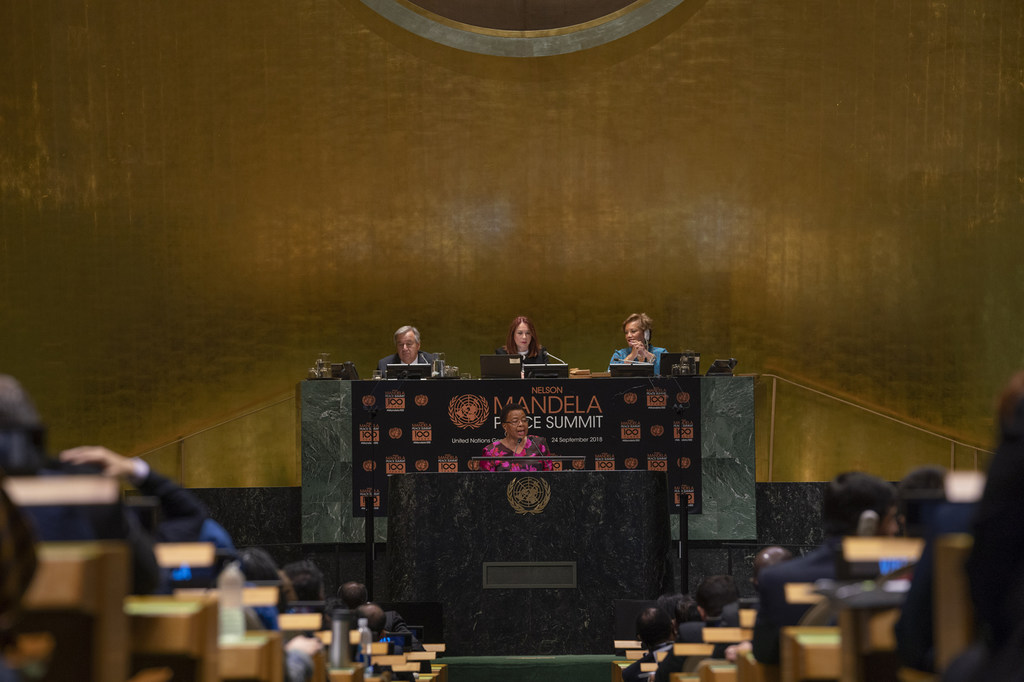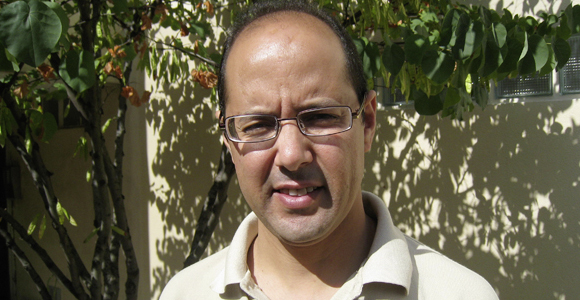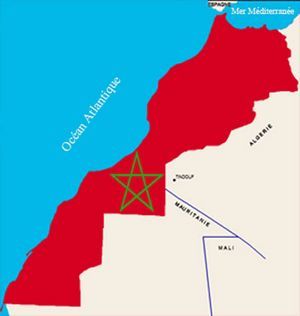 King Mohammed VI has paid tribute to the late South African Icon Nelson Mandela, a champion of peace and understanding between nations, an extraordinary man who belongs indisputably to a category of universal people whose destiny has local, national, continental and global implications.
King Mohammed VI has paid tribute to the late South African Icon Nelson Mandela, a champion of peace and understanding between nations, an extraordinary man who belongs indisputably to a category of universal people whose destiny has local, national, continental and global implications.
Nelson Mandela’s “stance on the preservation of national sovereignty earned him the status of champion of peace and understanding between nations – a stance far removed from vicissitudes, uncertainties, calculations and harmful divisions,” King Mohammed VI said in a message read out at the Nelson Mandela Peace Summit, held Monday at the United Nations headquarters in New York.
“To those who advocated separatism or caused any form of instability, Mandela responded by championing unity, for he understood that our continent’s development hinged on the territorial integrity of its States,” the Monarch said. He added that the action of Mandela, the politician, was always characterized by sound, well though-out judgments.
“His major decisions were never made hastily. He incarnated a school of wisdom that his successors should perpetuate. The values he embodied with unwavering courage are the very values to which we firmly adhere. They are the guiding principles of my country’s political and civic action in the Kingdom, in Africa and in the world.”
The king went on to say in his message to the event celebrating the centenary of the birth of the late South-African leader that “Nelson Mandela showed us that dialogue and negotiation must be pursued with relentless resolve, no matter how deep the chasms or misunderstandings. Unfortunately, however, even when peace was within reach at times, we often let the occasion slip.”
Nelson Mandela embodied not only the struggle of a people, but also that of a continent: Our Africa. A staunch advocate of the principles of equity, probity and universal morality, Mandela belonged to a category of African leaders who were committed to humanist values and lofty principles.
Calling on the UN to defend and preserve Mandela’s lofty vision, the King recalled that “the icon of reconciliation, the late Mandela never stopped urging us to engage in a collective self-examination regarding the humanist values he embodied, calling upon us to transcend our divisions, be they political or economic. To grapple with the scourge of racism, he advocated liberation; to tackle partition, he championed unity; to ward off the perils of fragmentation and marginalization, he opted for unification; he was a relentless advocate of progress and prosperity, instead of underdevelopment and isolation.”
On Mandela’s relations with Morocco, King Mohammed VI said “There was most certainly a Moroccan chapter in Madiba’s rich life,” recalling the sincere affection and esteem he had for the late King Hassan II. “This affection was mutual. It stemmed from the unconditional support provided by Morocco to African Liberation Movements,” he said underscoring that this was a core feature of the reign of both the late King Mohammed V and the late King Hassan II. “Both of them welcomed all African Liberation Movements. When the latter sought help and support, they used the Kingdom as a military and political base.”
“Between 1960 and 1962, Mandela lived in Morocco, where he received the Kingdom’s support for his legitimate struggle. This multiform, continuous assistance during the struggle waged by the South African national movement included the training of ANC activists in the Oujda region, the provision of logistical and military aid to the ANC as well as support for the diplomatic activities led by the Nelson Mandela Movement abroad,” the monarch stated.
The King recalled that in appreciation of that precious assistance, Nelson Mandela made it a point to come to Morocco in November 1994 to show his unfailing solidarity with the Moroccan people and was then decorated with the Kingdom’s highest distinction in recognition of the exceptional struggle he waged for equality and justice.
At the Nelson Mandela Peace Summit, the Member States adopted the first resolution of the General Assembly’s 73rd session, “committing to demonstrate mutual respect, tolerance, understanding and reconciliation in [their] relations,” and pledging to build a just, peaceful and prosperous world and to revive the values for which the former South African President and anti-apartheid campaigner stood.



